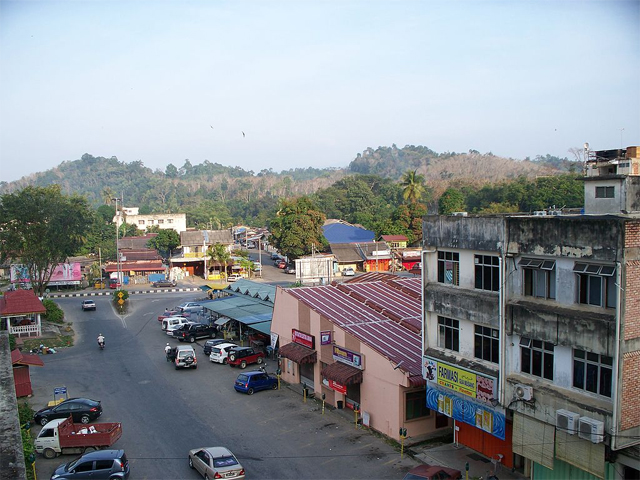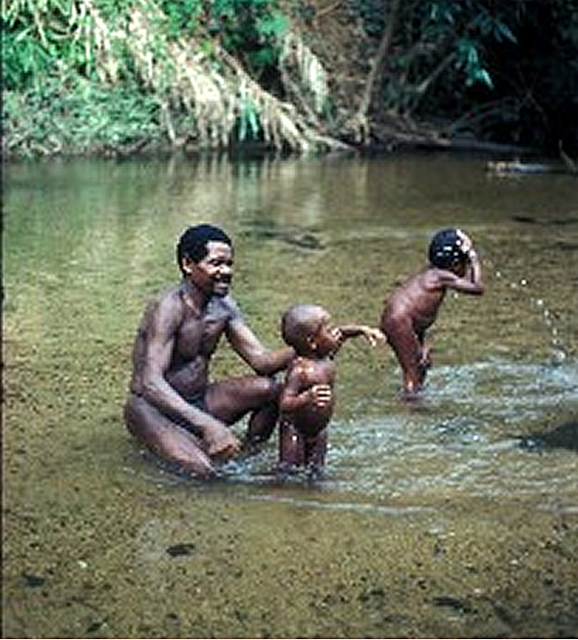Bernama, the news agency of the government of Malaysia, produced two stories about the Batek last week, the first of which reported a distressing incident. The news service report on November 3 concerned a herd of wild elephants that had destroyed the water system for a village.

Over 300 residents of Kampung Aring 5, in Gua Musang, awoke on November 3 to find that the water supply for their village was gone. Rina Anjang, the 47-year-old village leader, said that sometime between 11 pm on November 2 and very early Nov. 3 a herd of wild elephants destroyed their three water tanks and some pipes.
When the villagers got up at dawn and discovered the lack of water, they had to hike an hour, about three kilometers, back into their water catchment area in order to figure out what had caused the problem. The people found evidence showing that the elephants had stamped on and scattered the pipes—and they were still hanging around the area. She said they had just retreated into the forest when they heard the villagers approaching.

Rina told reporters that the village would have to submit a request to the Orang Asli Development Department (JAKOA) since the people did not have enough money to fund the necessary repairs. In the meanwhile, the Batek would have to use water from the river for their needs, though they were not sure how clean it is.
Husin Selik, another villager, said that this was the first time the water system had been attacked by elephants. In the past, they had only been known to destroy banana trees and other plantings of the villagers. The news story did not include any speculation as to why the elephants had attacked the water fixtures.

On November 6, Bernama produced a story saying that Dr. Wan Azizah Wan Ismail, the Deputy Prime Minister of Malaysia, had been scheduled to visit the village of Kuala Koh on Sunday, November 10. Her visit was planned to deliver financial aid from the national government as promised after a measles epidemic last spring devastated the community and killed 15 people.
Mohamad Pokok, the headman of Kuala Koh, said that the villagers were eager to receive the financial assistance since it would be a big help to the community. He was notified by the authorities to make all the appropriate preparations for the visit of Wan Azizah to the community.
The headman said, “We will give a warm welcome to the deputy prime minister…” He added that the Deputy Prime Minister had visited the area during the measles crisis but she had not been able to visit Kuala Koh itself since the village at the time had been designated as a “red zone.” So she had visited the nearby community of Aring 10 instead. The residents of Kuala Koh were eager to meet her.
Kulim Tebu, 72, another villager, reminded the reporter that government assistance had been promised after the epidemic had run its course but so far their needs for basic services such as clean water and electricity, as well as of course disaster relief, had not been provided. But, he said, the people were hopeful that “the leader will be able to fulfil all the promises made previously.”